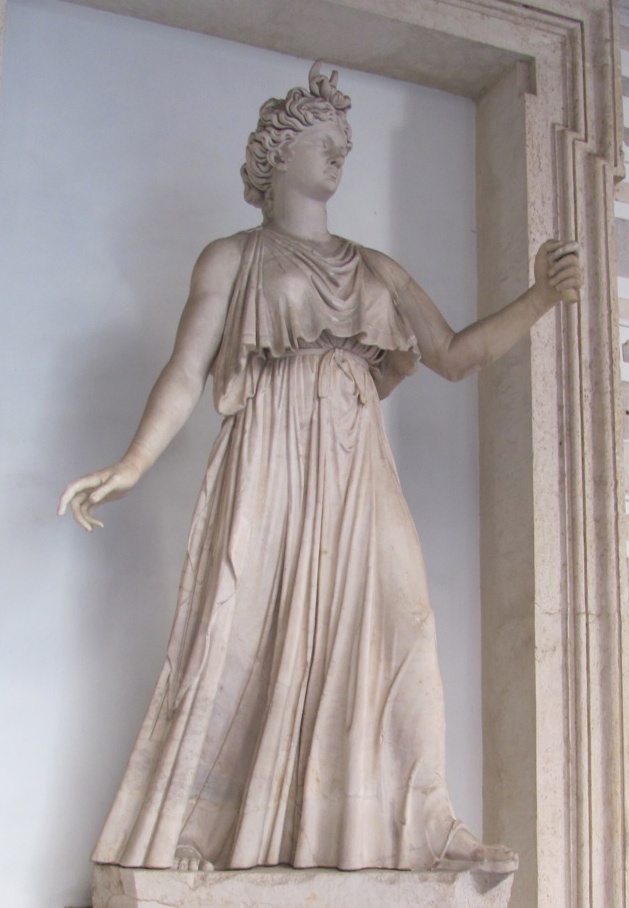 Fortuna, Capitoline Museum, Rome (Author photo) “What inspires you?” is a question I’m frequently asked in many guest posts, in podcast interviews, or at conferences.
The people asking are usually lovely – genuinely interested and keen to hear the answer. Perhaps they are writers themselves, or wish to make a connection on an artistic and creative level or want to know the answer to life, the universe and everything. That last one’s easy: 42. (Apologies to The Hitchhiker’s Guide to the Galaxy.)
Let’s be serious. Well, for a moment.
I dread this question, not because I don’t want to reveal the secret identity of my silken-gowned muse, nor divulge her equally secret pearls of wisdom. Am I frightened she might run away, never to be seen again? No, I don’t want to let readers down with my answer.
I confess – I don’t know. *runs away and hides*
An inspiring thought or emotion can be anything and come from anywhere. For me, it’s like being ambushed. I often don’t have a clue until it drops into my head. When it does, it’s something shallow and mundane like being held on the phone in a queue, spotting a bargain or scoffing at a mistranslation at a tourist site.
 Roman food strainer, 1st century AD, British Museum (Author photo) I’m more likely to wonder how Roman women handled menstruation than how the battle of X was won, or how long it took to hand pierce the holes in a Roman kitchen sieve rather than how many nails were used in the Norman invasion ships. (Actually, the nail question is quite interesting…)
The Roma Nova books originated from a decades’ long fascination with Ancient Rome and women’s roles in the modern world but given it took more than thirty years to get the first words onto the computer screen (bypassing the typewriter), it can hardly be called a *moment* of inspiration. It was a slow-growing, but persistent, climbing plant.
Like all authors, whether they admit it or not, I drew on events, people and experiences from my life up to that moment. We are all shaped by these experiences and by our background and values.
There will always be a little bit of the author in her book however much any author claims to deny it. And if we don’t show that in our main character, we switch it into another prominent secondary character. We all live in our own little world at the centre of which is our own delightful/dreadful ego so any self-expression like writing is bound to reflect it.
The Mélisende books, Double Identity and Double Pursuit, for instance, based on a Franco-British intelligence operative were written after nine Roma Nova thrillers featuring tough and lively heroines. While there was a proportion of new information to research and absorb, I did have prior knowledge from my own life experience or from writing the Roma Nova thrillers:
- tough, active heroine with heart – check
- crime/adventure/thriller – check
- France/French setting – check
- European connection – check
- armed forces – check
- modern Rome – check
- financial skulduggery – um, sort of, years ago, 25% check
- African Sahel – nope (Research required)
- gun-running – nope (Massive amounts of research required)
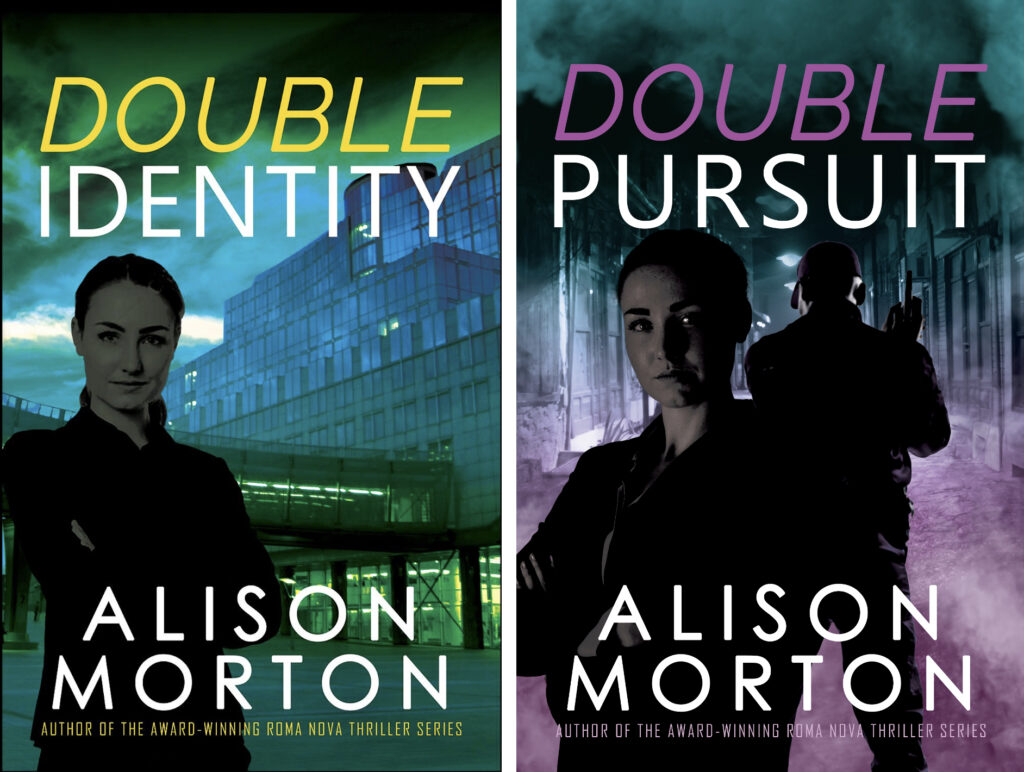
Perhaps inspiration for those two books was a mix of experience, wishful thinking, nostalgia and an itch to write something based in my part of France.

Inspiration for me is a formless cloud, wisps, really, wafting around in my mind with no fixed abode. It takes something to come along – a bad film, five words in an email from a Very Famous Author, idle attention to a television report of a coup – to get the cloud to clump and produce a bolt of lightning. Usually, it’s a little crackle at the back of the sky. Hopefully, not a damp squib.
Alison Morton is the author of Roma Nova thrillers – INCEPTIO, CARINA (novella), PERFIDITAS, SUCCESSIO, AURELIA, NEXUS (novella), INSURRECTIO and RETALIO, and ROMA NOVA EXTRA, a collection of short stories. Audiobooks are available for four of the series. Double Identity, a contemporary conspiracy, starts a new series of thrillers. JULIA PRIMA, Roma Nova story set in the late 4th century, starts the Foundation stories. The sequel, EXSILIUM, is now out.
Find out more about Roma Nova, its origins, stories and heroines and taste world the latest contemporary thriller Double Identity… Download ‘Welcome to Alison Morton’s Thriller Worlds’, a FREE eBook, as a thank you gift when you sign up to Alison’s monthly email update. You’ll also be among the first to know about news and book progress before everybody else, and take part in giveaways.
If you enjoyed this post, do share it with your friends!Like this:Like Loading...
 Rounded, multi-layered characters are essential if you want people to be engaged in your story. Reading is an emotional trip and we want to gasp, shiver, feel rolls of warmth, resentment, sympathy, fear, loss, and triumph as we turn the pages. Rounded, multi-layered characters are essential if you want people to be engaged in your story. Reading is an emotional trip and we want to gasp, shiver, feel rolls of warmth, resentment, sympathy, fear, loss, and triumph as we turn the pages.
Superwomen are fine in some contexts – we like a bit of pushing over the edge of reality – but our heroines and heroes should make horrible mistakes, mis-judgements and stupid decisions, but also be aware, clever and cunning as appropriate. They are, after all, only human.
But equally important is to think about what formed those characters. Some characteristics are common across ages, locations and personality. Bad temper or a sweet disposition, a loving childhood or abusive environment can occur whether your character lives in Ancient Rome or the Moon Colony in 2175.
But what are the factors that make your character what they are in the place that they exist?
Looking at the large scale, most settings have a form of governance – autocratic, democratic or even none, which brings its own scope for conflict. Similarly, some sort of economic, social and political systems exist, whether feudal, industrial, agricultural, self-sufficient, colonial, revolutionary, egalitarian or something else. You don’t need to mention these as such, unless they impact directly on the plot, but you need to have it all worked out in your head.
On the personal level, most people are concerned with food, shelter, safety and income. On top of that, in no particular order, health, their family, the future for their children and a non-miserable old age and pain-free death. After that come more altruistic concerns like personal values, social good and social justice, the urge to explore, discover and invent.
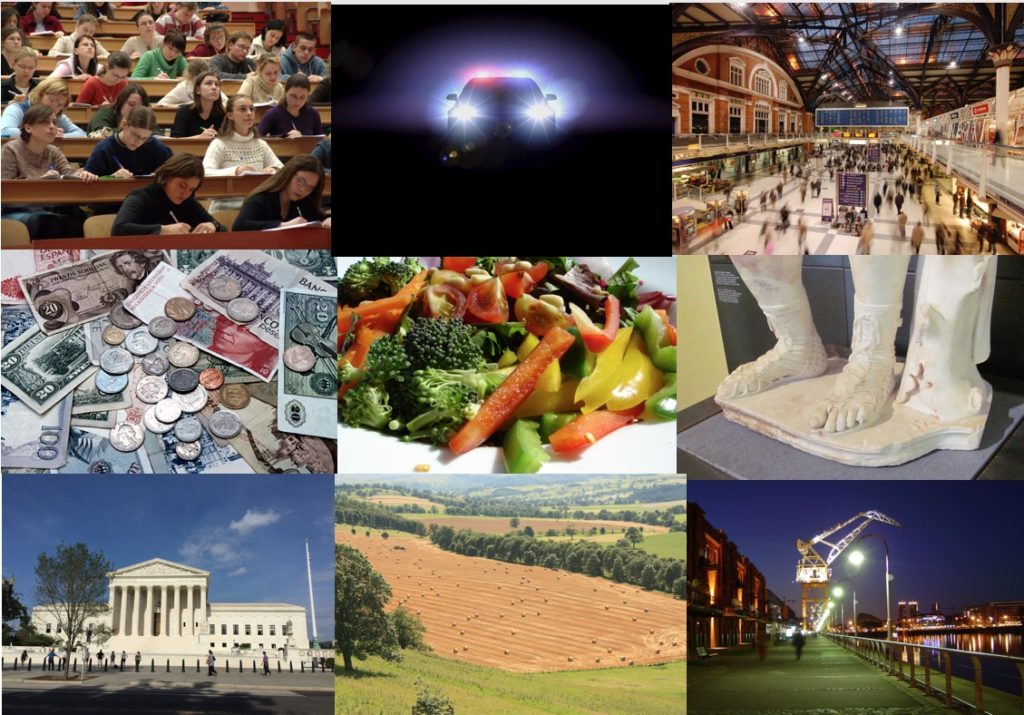
The essential questions
Back to our characters… You probably know their role in the story, their motivation and their ultimate goal. But what do you know about their values, knowledge and experience of the world that formed them?
How do people make their living?
Where do they work?
How are they educated?
What kind of production is there? Artisans or big industry?
Is the government representative?
Is there a class/caste system, and is it flexible or structured? Overt or ‘understood’?
Are laws authoritarian, permissive or strict?
What’s the religious practice? Easy going or compulsory? Personal or collective?
What’s the crime level?
What’s growing in the fields? What animals are grazing?
What’s the food like?
What do people wear? Don’t forget boots, shoes, sandals or bare feet.
Are there markets, little shops, big chains?
What does the money look like? Is there banking, credit or pennies under the bed?
Are there muddy tracks or metalled roads? Are they safe?
Is transport horse and cart, steam engines, electric trains, aeroplanes, space rockets or hyperspace portals?
And what about ports, ships, navies, river transport, canoes and barges?
Do people travel or stay put?
Are there accepted codes of behaviour – speech, manners, obligations, red lines?
Is there law enforcement, robber bands, distrust in authority?
And the big question – who holds the power?
Quite a lot of this will depend on geography
Are there mountains, seas and rivers?
Does the countryside consist of plains, valleys forests?
Big cities or small towns, coastal or inland?
And don’t forget the weather… 😉

Make sure your characters act naturally within their world.
Characters don’t explain chunks of backstory to each other when they meet. Imagine explaining a third person’s entire life story to your best friend when you’re relaxing over a drink. All your friend/colleague wants are the bare facts of what that person has been doing to cause you to mention them. You can use letters, messages, instructions, photos, general dialogue, phone calls, TV, radio, internet, old friends as ways to bring the information in. This is what we do in our everyday real lives.
Your characters naturally accept where and when they live; this is their normality, so try to put yourself in their minds. The canny writer will be careful not to describe a world too obscure or alienating and will leave some hooks and common connections to our world, time and experience to maintain an element of familiarity. The trick is to make your book word plausible and authentic by keeping it consistent with and within that world. Otherwise, the reader may well click the book shut and delete it (or chuck it in the charity box).
Characters are what you make them in their role in the book, but they are also the product of their society, however mundane, otherwordly or othertimely that world might be.
Happy writing!
Alison Morton is the author of Roma Nova thrillers – INCEPTIO, CARINA (novella), PERFIDITAS, SUCCESSIO, AURELIA, NEXUS (novella), INSURRECTIO and RETALIO, and ROMA NOVA EXTRA, a collection of short stories. Audiobooks are available for four of the series.Double Identity, a contemporary conspiracy, starts a new series of thrillers. JULIA PRIMA, a new Roma Nova story set in the late 4th century, is now out.
Find out more about Roma Nova, its origins, stories and heroines and taste world the latest contemporary thriller Double Identity… Download ‘Welcome to Alison Morton’s Thriller Worlds’, a FREE eBook, as a thank you gift when you sign up to Alison’s monthly email update. You’ll also be among the first to know about news and book progress before everybody else, and take part in giveaways.
If you enjoyed this post, do share it with your friends!Like this:Like Loading...
 Conflict is the lifeblood of any fiction whether it’s between characters, between a character and their conscience, between the character and their environment. Obstacles abound, fate seems inexorable, bad characters never seem to give up. Conflict is the lifeblood of any fiction whether it’s between characters, between a character and their conscience, between the character and their environment. Obstacles abound, fate seems inexorable, bad characters never seem to give up.
Character is shown via actions and dialogue which shine a light on their values and motivations. Caius Tellus in my Aurelia books in the Roma Nova strand is selfish, obsessed and wants power. Gérard in Double Identity is selfish, careless and deceitful. Both these act in ways that I really don’t approve of, but it’s my job to fill out their character with words and deeds without telling the reader point blank.
Sometimes, authors have to put words into the mouths of characters that could be offensive, politically incorrect, or plain rude. Although basically ‘good guys’, Lurio from the Carina strand of the Roma Nova thrillers and Jeff McCracken from Double Identity both fall into this category. But for the truly nasty, I have to fall back on Caius Tellus again.
It’s a weird feeling writing harsh, bitter and corrosive words that I’d never utter or putting forward hate-filled, warped views, yet in a way it’s daring. Putting them through a character’s mouth means I keep a distance from them.
Most of my readers know this, but occasionally one takes it the wrong way. A colleague reported receiving hate mail over racist views expressed by a character in her book. She wondered why (some) readers couldn’t understand that the views held by characters in a novel were not necessarily the views of the author.
Now, she’d obviously made her characters so vivid that that reader was thoroughly in the story. However, for me, this reader’s comment showed an inability or even a refusal to understand nuance.
I’m an optimist, sometimes verging on the Pollyanna, but not at the expense of acknowledging there are some pretty nasty people around. There are also people with a lack of life chances who’ve done well and those with every privilege who’ve made a total selfish mess of everything. Some are opportunistic, others can’t be bothered. Some are calm to the point of cataleptic, others drive their friends and colleagues to distraction with their fussing. As with people, so with fiction characters.
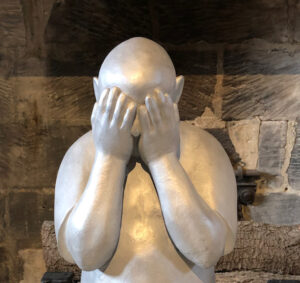 Author photo, Château du Rivaud Another author reported that her editor was worried about a Nazi in her book and was anxious that his racist views would offend some people. Um, I should hope they would! The editor was concerned readers would think the author held or supported such views and that it would blight the author’s career. (Covers face with hands in disbelief.)
Thinking in black and white is simplistic, a sign of immaturity, and ultimately dangerous. Unfortunately, we see this problem in current politics and the way many express themselves today. We need to have a wide range of views so that we can discuss the good, the bad and the ugly.
I think 95% of readers are canny, curious and perfectly capable of discerning the difference between character and creator. Books are a wonderful way of exploring the darker and distasteful parts of human nature and facing up to them without being touched personally by them. Well, hopefully not touched personally.
My villains will be continue to be horrible – that’s guaranteed – but they will have some kind of motivation or failing that’s taken them to where they are. And the heroines (and their heroes) will be just the same as they are now – tough, fallible, courageous but ultimately trying their best. And no, they’re not me either.
Alison Morton is the author of Roma Nova thrillers – INCEPTIO, CARINA (novella), PERFIDITAS, SUCCESSIO, AURELIA, NEXUS (novella), INSURRECTIO and RETALIO, and ROMA NOVA EXTRA, a collection of short stories. Audiobooks are available for four of the series.Double Identity, a contemporary conspiracy, starts a new series of thrillers. JULIA PRIMA, a new Roma Nova story set in the late 4th century, is now out.
Find out more about Roma Nova, its origins, stories and heroines and taste world the latest contemporary thriller Double Identity… Download ‘Welcome to Alison Morton’s Thriller Worlds’, a FREE eBook, as a thank you gift when you sign up to Alison’s monthly email update. You’ll also be among the first to know about news and book progress before everybody else, and take part in giveaways.
If you enjoyed this post, do share it with your friends!Like this:Like Loading...
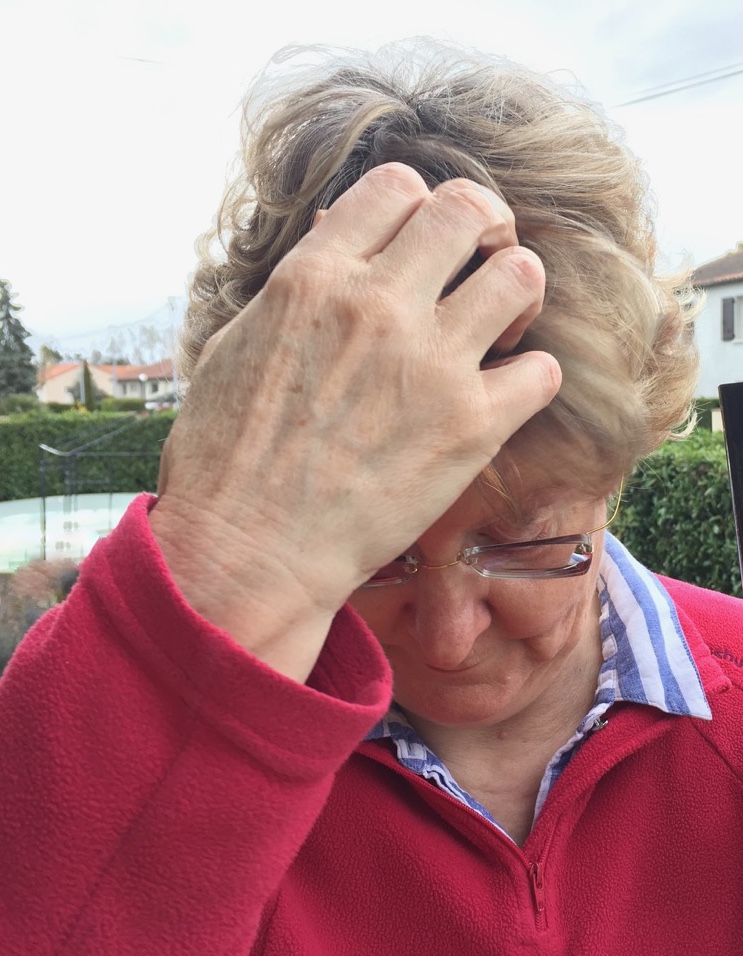 You stare at the stodgy sentences. You stare at the stodgy sentences.
You can’t think what words to write next.
You are starting to bore yourself.
Your characters are boring each other.
Nobody will want to read this drivel.
And so it goes round and round in your head.
You’ve written ten novels or none. You’ve won prizes or you’re just starting off, snatching precious evening or weekend minutes. It doesn’t matter where you are on your writing journey – this writing terror hits us all.
And yes, we then find ten thousand things to distract us from our writing; emptying the dishwasher, rearranging the office, even a desire to clean the loo. Some of us fiddle around on social media doing ‘marketing’ or even draft a blog post instead of getting on with our work in progress (Innocent face…).
But it can be sorted out.
A few things to consider…
Are you writing your first draft of a new story? Then don’t worry – this is the first rubbishy version. As one prominent author interviewed on the BBC said “All first drafts are shit.” This is my favourite comfort blanket. But it’s true. The first draft for me is to get the story out, however mangled the words may be. Then I have something to work on and the real writing begins.
The scary blank screen and the pulsing cursor… Haven’t we all been there? Yes, every writer knows this horror. No word occurs, no scintillating first sentence will come. The solution? Write some words. Any words. Not necessarily very good words. Keep it simple, just a short piece of dialogue, what the character is wearing, where they are, what just happened to them – anything – but get started. “The cat sat on the mat. It had just sicked up all over my new shoes. Now I’d never go to the ball and meet my heart’s love.” Don’t worry – the good words will mosey along in their own time, often when you aren’t looking.
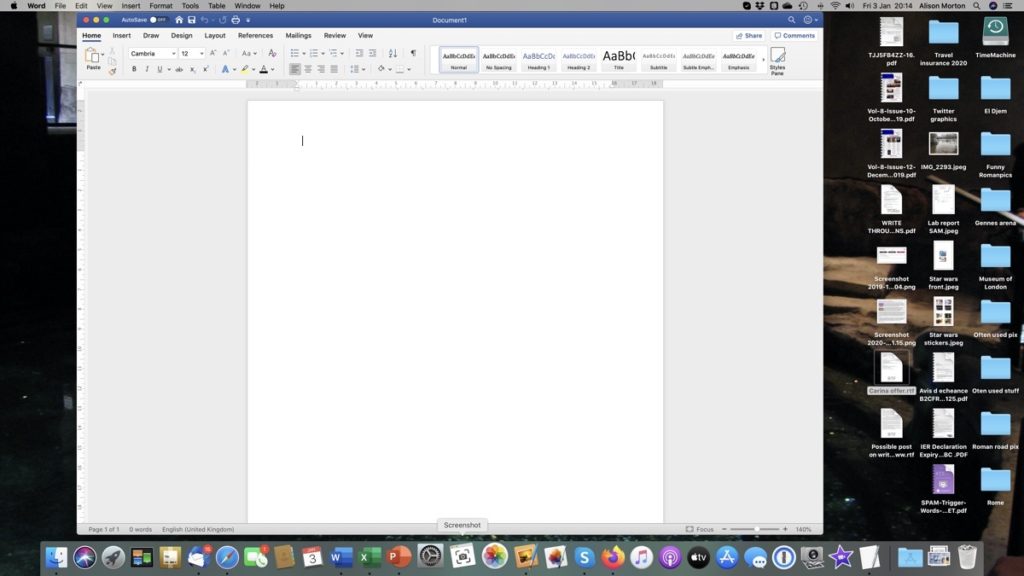
Are you worried about the subject matter being considered silly? No topic that can be imagined by the human mind is silly. Only if it’s poorly executed; that’s a matter of craft, skill and persistence, and it’s definitely achievable. A school for young witches, vampires, wars in the stars, spiders that talk, hundreds of murders in a sleepy English village – those don’t seem to have been ‘silly’ ideas. And as for a small country peopled by Ancient Roman descendants and ruled by women… 😉
Who am I to write this drivel? No writer thinks they are good enough. We all think we’re imposters without a proper job. Let me tell you a secret – no writer is ever satisfied with their work when it finally goes off to the editor, agent, publishing house or beta reader. Every time you read through your manuscript at any stage, you see something that could be improved. But after the nth time you become completely sick of it. That’s the time to push it out into the world and close the door on it. Then start the next piece of work which will unconsciously benefit from all the effort you’ve put into the previous ones. Yes, even though you think you won’t, you will write better prose, draft more quickly, be more observant and creative with every new piece you tackle..
Are you afraid of nasty reviews, multiple rejections, scorn, and your work being ripped apart? Sadly, some people have personality disorders that make them incapable of seeing anything positively. Some relish slashing and burning, but many are just envious of your achievement and of your daring and dedication. Even the very best authors, the darlings of the book world who may also be best sellers of all time have been rejected and lambasted. Yes, you will be hurt at sometime, but you are in honourable company. Not everybody will like your writing; they may dislike the genre, style or story. But you DO like it and it’s yours. Nobody has the right to stop you writing your story. Make it the very best you can then arm yourself with a dollop of self-belief and ignore the carpers.

But… Sometimes there IS a kernel of truth in the harshest of criticisms, so it’s worth steeling yourself and reading them. No writer can be wonderful all the time. But most help and advice will come wrapped in warm encouragement, surrounded by friendly suggestions and full of positive steps you might like to consider. Writers are like that. Editors are like that. Most people in the book world are like that. We all want writers to succeed.
And there will be readers who LOVE your words, your characters, the finely tuned plot, the clever research, the intelligent observation and the action-packed narrative and will be desperate for more. So you probably need to settle down to some writing…
Alison Morton is the author of Roma Nova thrillers – INCEPTIO, CARINA (novella), PERFIDITAS, SUCCESSIO, AURELIA, NEXUS (novella), INSURRECTIO and RETALIO, and ROMA NOVA EXTRA, a collection of short stories. Audiobooks are available for four of the series.Double Identity, a contemporary conspiracy, starts a new series of thrillers. JULIA PRIMA, a new Roma Nova story set in the late 4th century, is now out.
Find out more about Roma Nova, its origins, stories and heroines and taste world the latest contemporary thriller Double Identity… Download ‘Welcome to Alison Morton’s Thriller Worlds’, a FREE eBook, as a thank you gift when you sign up to Alison’s monthly email update. You’ll also be among the first to know about news and book progress before everybody else, and take part in giveaways.
If you enjoyed this post, do share it with your friends!Like this:Like Loading...
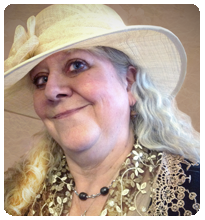 What happens when a historical fiction writer turns to crime? No, I’m not talked about me and the Mélisende crime thrillers, but Helen Hollick who has just published her third cozy crime. But she can’t shake off the historical fiction writer’s magic cloak. Her 1970s set series feature heroine Jan is the result. What happens when a historical fiction writer turns to crime? No, I’m not talked about me and the Mélisende crime thrillers, but Helen Hollick who has just published her third cozy crime. But she can’t shake off the historical fiction writer’s magic cloak. Her 1970s set series feature heroine Jan is the result.
Over to Helen!
“I do sometimes wonder why I decided to write historical fiction. As with any fiction you have your plot, your characters, their loves, hates, triumphs and tragedies. How they get into and out of situations. What happens – or what doesn’t. But on top of all that for anything historical there’s the research. The what happened when, where, why and how.
Of course, other genres also require research: science-fiction needs the science bits. Tell your reader that the North Star is in the constellation of Orion, and you’re done for. (It’s in Ursa Minor – also known as the Little Bear and the Little Dipper.) Romance needs research: your story will be deemed implausible if blue-eyed blonde Miss x is dating glamorous film star Mr X and he picks her up for their first date in a clapped out old Ford Escort. Unless he’s deliberately hiding his identity. Even so, I doubt Miss Blonde will be impressed. (Even we thriller writers need to know our Glocks from our Sig Sauers!)
Historical fiction can be hard to research when you’re writing about a period that has little written record, so for an author there is quite a bit of ‘making it up’ to be added in between the factual bits.
Not so easy when writing history that is within memory of your readers, though, It’s the nit-pick things they notice. Was the scent of Flash floor cleaner lavender or pine? Was Ty-phoo tea more popular than Tetleys? (And this would be loose tea, not teabags.) When did Izal, that scratchy toilet paper which we used as children for tracing paper, fall out of use? And that awful sterilised milk…? (I had the similar problem with videotape CCTV and changing from thermal fax paper to plain paper fax in the 1970s for AURELIA – my sympathies!)
The lead character of my cosy mystery series is Jan Christopher. She is a young library assistant working in a North London suburb public library in the early 1970s. Orphaned at a young age she was adopted by her father’s brother, DCI Tobias Christopher and his wife, Madge. One rainy day, she is to meet her uncle’s new detective constable, Laurie Walker. It’s love at first sight.
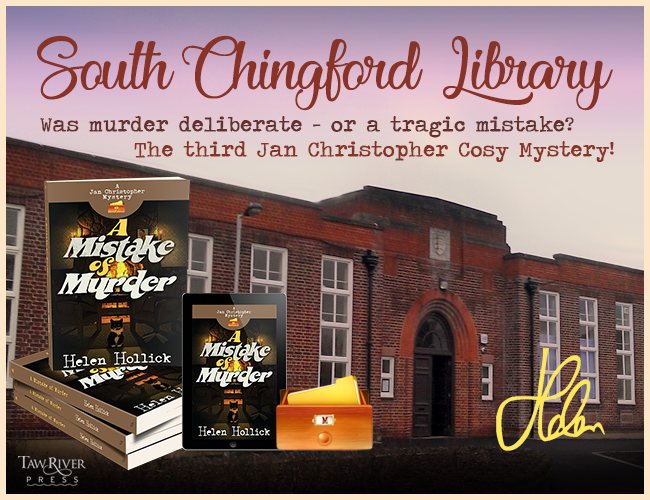
I chose the 1970s because that’s when I was a young library assistant working in South Chingford Library. I wanted to write an easy-read series where I could use my ‘library knowledge’, along with background detail of horse riding in Epping Forest. Outside of TV cop shows – Lewis, Vera, Foyles War, Poirot and such – I know very little about police procedure, so the cosy mystery appealed to me as these lean towards amateur sleuths and daily life revolving around a crime, rather than the other way round. All well and good, but I soon realised that there is a lot about the 1970s that I’ve either forgotten or was oblivious to as a naïve sixteen-to-nineteen-year-old! Politics seem to have completely passed me by.
The 1970s was the era of the workers’ Three Day Week and scheduled power cuts. I’m utterly amazed that I barely remember them! I do recall trying to convince people that, yes, I know you’ve got a torch, but for safety reasons we really do need to close the library if we have no lighting. I do not remember sitting at home by candlelight, annoyed that I was missing whatever was on TV. Maybe because there was only one television in the house and that was in the sitting room? No TV up in my room, and I don’t think I acquired my own stereo system until the mid-70s.
I do remember demonstrating to my Dad the wonders of Dolby. I played a track where it sounded like an aeroplane had flown right across the room. Stunning back then! Just for the record while I’m here: I saw the original first release of Star Wars, and was blown away by that opening scene where the Imperial Star Ship comes in overhead. The entire cinema shook, and it felt as though that ship really had passed over the top of us. Common stuff now, but back then…? Awesome!
So I’m finding that I’m having to do just as much research for my cosy mysteries as I had to do for my serious historical fiction, or my seafaring nautical adventures. But how on earth did we manage without smart phones, e-readers, computers, Netflix or Google…?
What one item would you miss the most if you found yourself transported back into the past?”
Brilliant, Helen! Both you and I have learnt just how selective our own memories can be. I think writing historical/alternative historical fiction has trained us to doubt everything – a valuable lesson when writing in a different era even when relatively modern!)
What’s the third Jan Christopher mystery A Mistake of Murder about?
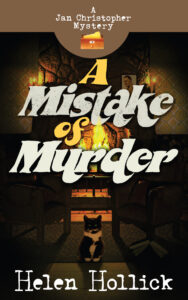
Was murder deliberate – or a tragic mistake?
A series of burglaries and an elderly person is murdered. Can library assistant Jan Christopher help discover whether murder was a deliberate deed – or a tragic mistake?
January 1972. The Christmas and New Year holiday is over and it is time to go back to work. Newly engaged to Detective Sergeant Lawrence Walker, library assistant Jan Christopher is eager to show everyone her diamond ring, and goes off on her scheduled round to deliver library books to the housebound – some of whom she likes; some, she doesn’t.
She encounters a cat in a cupboard, drinks several cups of tea… and loses her ring.
When two murders are committed, can Jan help her policeman uncle, DCI Toby Christopher and her fiancé, Laurie, discover whether murder was a deliberate deed – or a tragic mistake?
About Helen
First accepted for traditional publication in 1993, Helen became a USA Today Bestseller with her historical novel, The Forever Queen (titled A Hollow Crown in the UK) with the sequel, Harold the King (US: I Am The Chosen King) being novels that explore the events that led to the Battle of Hastings in 1066. Her Pendragon’s Banner Trilogy is a fifth-century version of the Arthurian legend, and she writes a nautical adventure/fantasy series, The Sea Witch Voyages. She has also branched out into the quick read novella, ‘Cozy Mystery’ genre with her Jan Christopher Murder Mysteries, set in the 1970s, with the first in the series, A Mirror Murder incorporating her, often hilarious, memories of working as a library assistant.
Her non-fiction books are Pirates: Truth and Tales and Life of A Smuggler. She lives with her family in an eighteenth-century farmhouse in North Devon and occasionally gets time to write…
Buy A Mistake of Murder
Available from an Amazon near you, or order from any bookstore. Paperback and e-book available. https://mybook.to/MISTAKEofMURDER
Helen’s Amazon author page: https://viewauthor.at/HelenHollick
Helen’s website: https://helenhollick.net/
Subscribe to Helen’s newsletter: https://tinyletter.com/HelenHollick
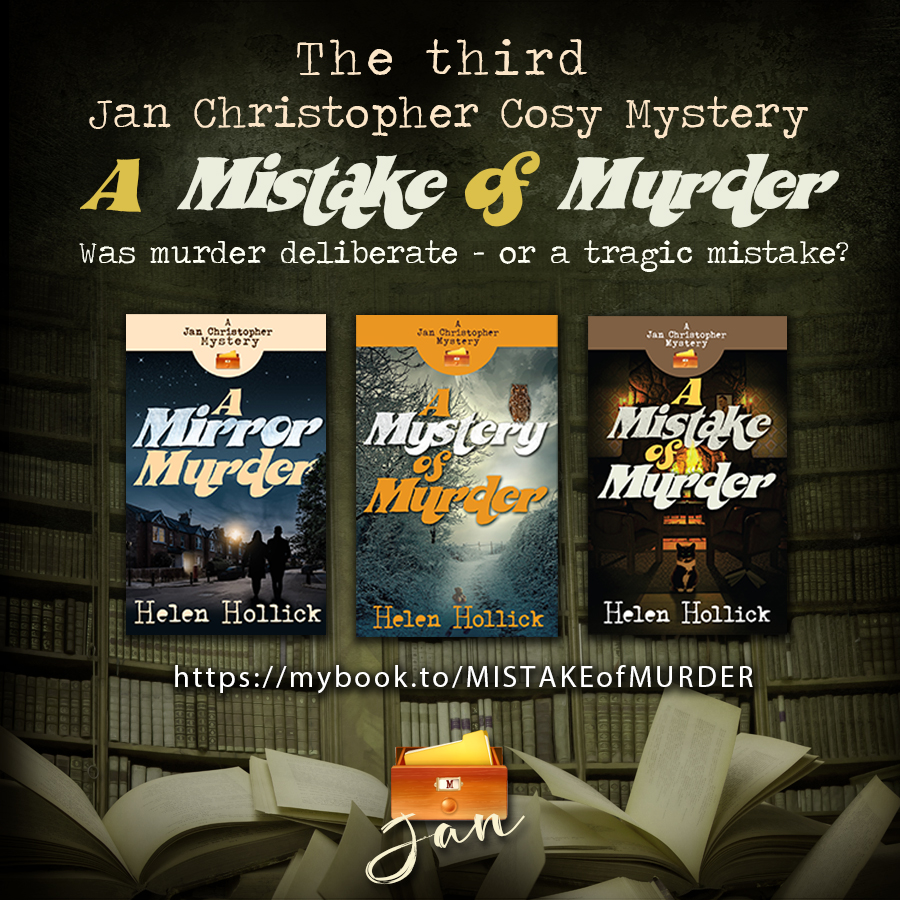
Alison Morton is the author of Roma Nova thrillers – INCEPTIO, CARINA (novella), PERFIDITAS, SUCCESSIO, AURELIA, NEXUS (novella), INSURRECTIO and RETALIO, and ROMA NOVA EXTRA, a collection of short stories. Audiobooks are available for four of the series.Double Identity, a contemporary conspiracy, starts a new series of thrillers. JULIA PRIMA, a new Roma Nova story set in the late 4th century, is now out.
Find out more about Roma Nova, its origins, stories and heroines and taste world the latest contemporary thriller Double Identity… Download ‘Welcome to Alison Morton’s Thriller Worlds’, a FREE eBook, as a thank you gift when you sign up to Alison’s monthly email update. You’ll also be among the first to know about news and book progress before everybody else, and take part in giveaways.
If you enjoyed this post, do share it with your friends!Like this:Like Loading...
|
Subscribe to Blog via Email
Join 368 other subscribers.
Categories
Archive
|


























